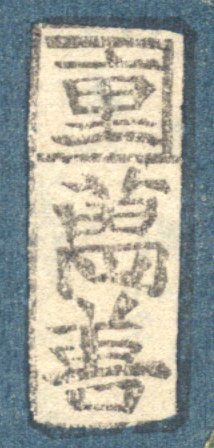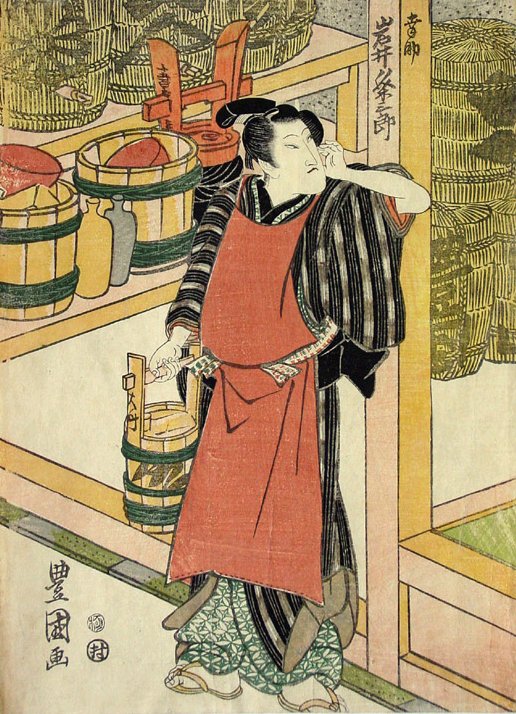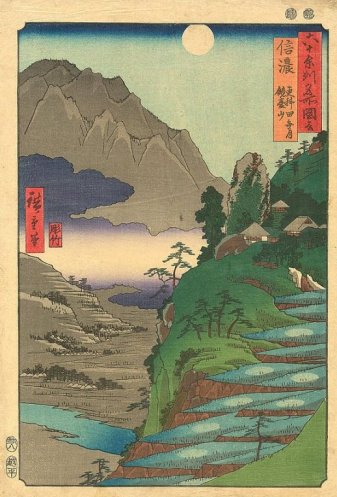
JAPANESE PRINTS
A MILLION QUESTIONS
TWO MILLION MYSTERIES
Ukiyo-e Prints浮世絵版画 |
|
Port Townsend, Washington |
|
|
AFTER YOU HAVE VISITED THIS PAGE |
|
|
|
|
|
|
|
...the camel would like you to click on his nose so that you will be transported to our home page with links to all of the other pages at this site. |
|
|
THE PRINTS SHOWN ON THIS PAGE PERTAIN TO PUBLISHERS SEALS WHICH WE HAVE NOT OFFERED (YET), BUT WHICH HAVE BEEN SENT TO US BY SOME OF OUR CORRESPONDENTS. NONE OF THESE PRINTS ARE FOR SALE. |
|
|
|
|
|
|
|
|
|
|
Kunisada print published by Kawaguchi-ya Shōzō. This example comes from the Eikei (英渓) Collection. |
|
|
|
|
|
|
|
|
|
|
Hiroshige print published by Sano-ya Kihei in 1839-40. This example was presented to us by Dede and Bruce H. for posting on this page. |
|
|
|
|
|
|
|
|
|
|
|
Kuniyasu print published by Mori-ya Jihei in 1824. Private collection.
On a personal note: I appreciate all contributions to this page allowing us to display a greater number of publishers' seals which might help visitors identify the marks on prints in their own collections. However, I must tell you that this print which was sent to me out of the blue has to be one of my favorite images of all time. Everyone's taste is different, but I hope that some of you out there enjoy this image half as much as I do. What a treat! There is more coming. |
|
|
|
|
|
|
|
|
|
|
|
Shunkō print published by Ōmi-ya Heihachi. Private collection. |
|
|
|
|
|
|
|
|
|
|
|
Above is a Sadafusa print published by Kawaguchi-ya Chōzō. This example comes from the Eikei (英渓) Collection.
This publisher's seal really stumped me. In my library there are more than one thousand different publishers identified, but this mark was not among them. I had to ask an expert for help which he kindly provided. Now we, you and I and the rest of us, know. Don't we? |
|
 |
||
|
Above is a Hiroshige print published by Eijūdō from ca. 1832-34. Private collection. |
 |
|
|
|
|
|
|
|
|
|
|
Above is a Toyokuni I print published by Izutsu-ya Shōkichi from ca. 1797. Private collection. Note: The seal shown to the right is from a different print. We did this because we were able to get a better, i.e., larger image. |
|
|
|
|
|
|
|
|
|
|
|
Above is a Kunichika print published by Manzen. This example comes from the Eikei (英渓) Collection. |
|
 |
||
| Above is an Eishi print published by Nishimura Yohachi. Private collection. |
 |
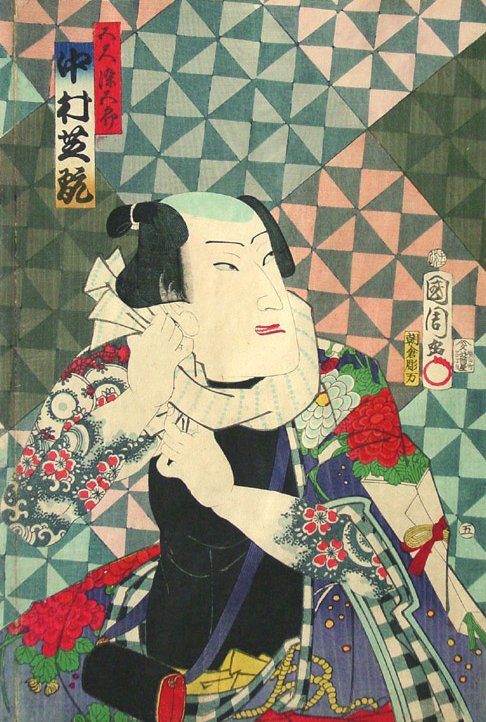 |
||
| Above is a Kunichika print published by Tsujioka-ya Bunsuke in 1864. This example comes from the Eikei (英渓) Collection. The seal is by this publisher, but not from this print. |
 |
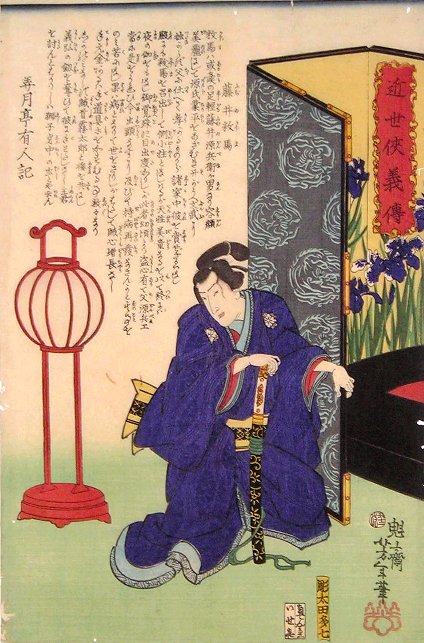 |
||
|
Above is a Yoshitoshi print published by Ise-ya Kanekichisaburo in 1865. This example comes from the Eikei (英渓) Collection. |
 |
|
|
|
|
|
|
|
|
|
|
Above is a Toyokuni I print published by Murata-ya Jirobei from 1816. This example comes from the Eikei (英渓) Collection. |
|
|
|
||
|
|
To visit our second page of examples of publishers' seals which we haven't offered yet click on Hiroshige landscape above to the left or to go to our third page on this theme click on the bijin applying makeup above right. |
|
|
ABOUT THE WALLPAPER ON THIS PAGE |
|
|
|
ThIS wallpaper is taken from a ginko site run by a Kansas Citian, William Foard. I wrote Mr. Foard and asked his permission to use some of the photos. Normally I wouldn't use Missouri images to illustrate an ukiyo site, but in Japan the ginko leaf has a long history as a major motif. Merrily Baird in her Symbols of Japan (pp. 50-51) notes that these trees are often found at temples and shrines and are used to encircle the grounds of the Imperial Palace in Tokyo. She adds: "Numerous family crests are based on the fan-shaped leaf of the ginko. The leaf also appears in kimono designs and as a motif in other art mediums." |
|
|
|
"Photo Copyright William Foard"
Mr. Foard was kind enough to give his permission for my use of some of his images. He owns the rights to each of these. Below is another example taken from his site and a link to his home page. Please visit it. You don't have to go to Japan to feel the aesthetic thrill.
|
|
|
| http://www.foardmedia.com/ginkgo/ |












